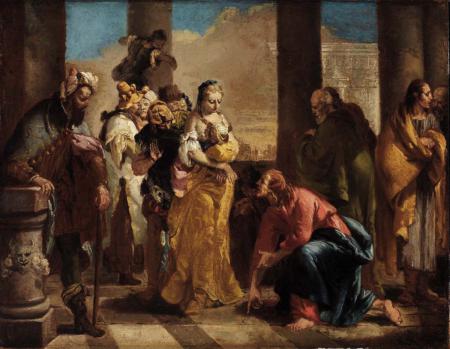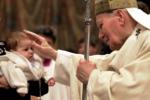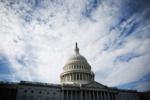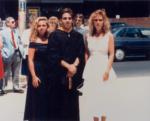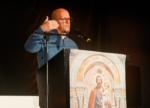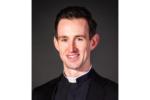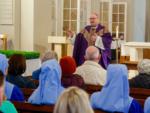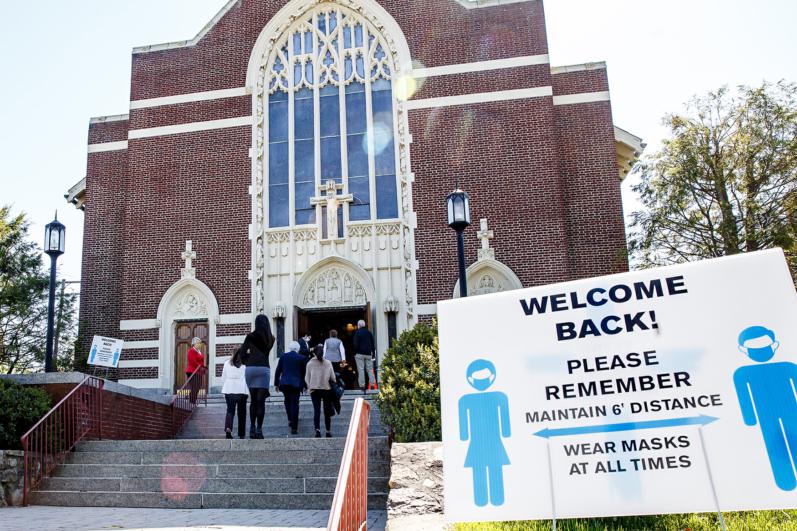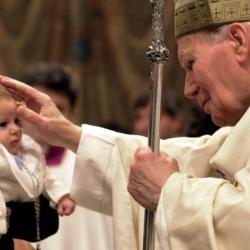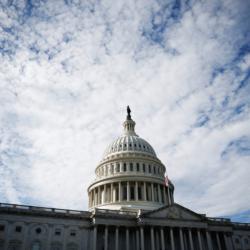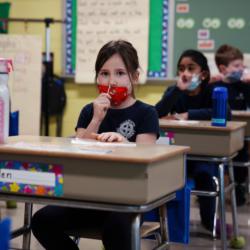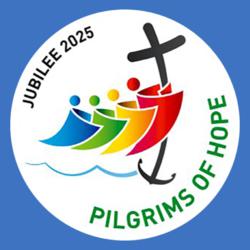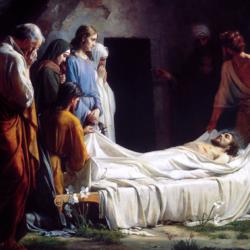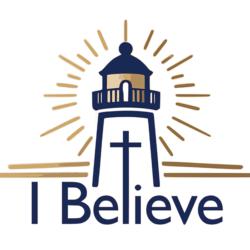Archdiocese's last COVID measure to be lifted on Corpus Christi, marking end of pandemic era
BRAINTREE -- The last of the Archdiocese of Boston's many pandemic-related safety measures is being lifted this weekend, just in time for one of the most important celebrations in the liturgical year.
As of 4 p.m. on June 10, 2023, the Solemnity of the Most Holy Body and Blood of Christ (Corpus Christi), all restrictions on the distribution of Holy Communion under both species are to be lifted. Parishes will once again be allowed to distribute the Precious Blood as well as the Blessed Sacrament in the celebration of the Eucharist.
The option to receive the Precious Blood was one of the first aspects of the Mass to be restricted at the onset of the coronavirus pandemic in early 2020. The prohibition has remained in place for over three years, even as other coronavirus-related measures have been lifted over time.
An April 12 announcement signed by Father Paul Soper explained that pastors may use their own discretion in deciding whether or not to distribute the Precious Blood to their congregation.
"Cardinal Seán is very grateful for the heroic patience with which the parishes of the archdiocese have borne the burden of these protocols, for the sake of the common good," Father Soper said.
One archdiocesan official who has been at the center of coronavirus-related developments in the archdiocese is MC Sullivan, the chief healthcare ethicist of the archdiocese. The Pilot spoke with Sullivan on June 5 about the impact of the pandemic and the way people responded to it.
She often refers to the pandemic as "one of the greatest social psychology experiments that most of us will ever see in our lifetimes."
She said that from the beginning, public health officials knew that this disease was not just another form of the flu. But, since human nature is "resistant" to change and uncertainty, many people did not want to hear about it.
"When I think back to the very beginning, I think change, uncertainty, and resistance were the characteristics of what we were experiencing," Sullivan said.
As the coronavirus spread from country to country, the archdiocese issued its first directives to prevent its spread on Feb. 29, 2020. Similar to precautions during flu outbreaks, they included draining and cleaning holy water fonts and refraining from physical contact while making the sign of peace. The distribution of the Precious Blood was suspended at that point, with exceptions for people with severe cases of celiac disease.
The seriousness of the virus became more apparent to the faithful on March 13, 2020, when the archdiocese suspended the celebration of public Masses and religious services. According to an announcement at the time, the decision was made in light of then-Gov. Charlie Baker's Emergency Order prohibiting gatherings of 250 or more people. The archdiocese's Catholic schools also closed, initially with the intention of returning in two weeks, but they remained closed for the rest of the academic year, with students learning remotely at home.
For a time, gatherings of more than 10 people were prohibited in Massachusetts. This meant that even private services like wakes and funeral Masses could not be held as they normally would. Instead, most bereaved Catholics had to hold graveside committal services with the intention of holding a memorial Mass at a later date.
Sullivan emphasized that the Church's leaders did not decide on restrictions on their own. Most of the archdiocese's measures followed the guidance of public health officials. But many people -- laity and clergy alike -- did not understand this, seeing the measures as restricting their religious freedom.
"People didn't seem to get that this wasn't a Church-state matter, it was a matter of survival, and particularly for the most vulnerable among us," Sullivan said.
She said that, while she initially received a lot of resistance, it lessened as people came to understand that the measures were in place not only for people to protect themselves, but also to protect others, especially the most vulnerable, such as those with preexisting health conditions. She said it "very much called on us in our values to always look to margins, protect the vulnerable, defend those who cannot defend themselves."
"When you put it in that kind of language, that's living out our faith. How do you not take care of the vulnerable among us? So, it helped people kind of shift their thinking and rethink their values and their behaviors," Sullivan said.
Looking back, she said her best memory from that time was the organization of the volunteer corps of priests who were trained to minister to hospitalized COVID-19 patients. This was no small task, since even family members and social workers were not allowed to visit patients. Sullivan had to speak with the leadership of each hospital in the archdiocese to get permission, and the priests had to be trained to minister the sacraments while wearing personal protective equipment and following hospital protocols. The volunteer priests had to live in separate rectories, away from their parishes, while priests who could not participate helped in other ways, such as dropping off meals for them. This specialized ministry allowed people dying of the coronavirus to have pastoral care and accompaniment.
"It was a time of great education of people who perhaps didn't know a lot about our faith, and the very real integration of spiritual care into comprehensive whole-person care," Sullivan said.
After two months, houses of worship were allowed to resume public gatherings as part of the first phase of reopening the Massachusetts economy. Public Masses resumed during the weekend of May 23-24, 2020. Each parish had to receive permission to hold Mass from their regional bishop or episcopal vicar, and it would only be granted if the parish had met all the state, municipal, and archdiocesan guidelines.
Even then, the celebration of Mass looked very different from before the pandemic. Under the state's standards, those over the age of five were required to wear masks, and residents of different households had to sit at least six feet apart. There could be no singing, shared books, or passing of offertory baskets. Worship spaces had to be cleaned and disinfected between services, and also needed to provide handwashing facilities.
A year later, Gov. Baker lifted most pandemic-related restrictions, prompting the archdiocese to issue new guidance. Starting the weekend of May 29-30, 2021, people who had been fully vaccinated against the coronavirus no longer had to wear masks or maintain social distancing at Mass. However, some parishes designated sections of pews for people who wished to continue these precautions. Congregational singing, shared books, altar servers and liturgical ministers were once again allowed.
With this weekend's lifting of the restriction on distributing the Precious Blood, all coronavirus-related protocols are now officially lifted in the Archdiocese of Boston. With its end, parishes can finally say things are "back to normal."
Sullivan applauded Joe McEnness, executive director of the archdiocese's Office of Risk Management, for his work throughout the pandemic. She also expressed gratitude that she was able to meet and work with so many archdiocesan leaders during that time.
She also praised Cardinal O'Malley's leadership, which "helped immeasurably, both on a policy level as we dealt with this, and also individually." Even when "naysayers" directed their anger at him, he remained "calm" and "compassionate."
"That he took it seriously and responded accordingly spoke volumes to Catholics throughout the archdiocese," she said.
